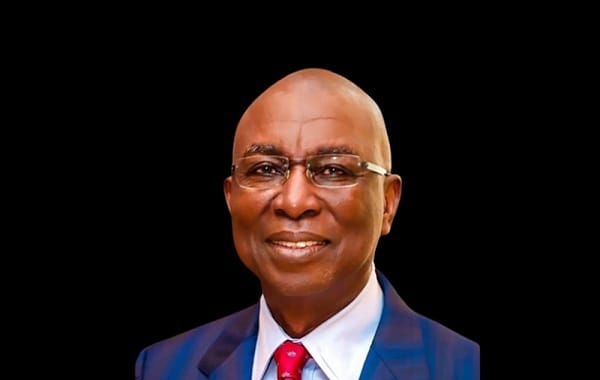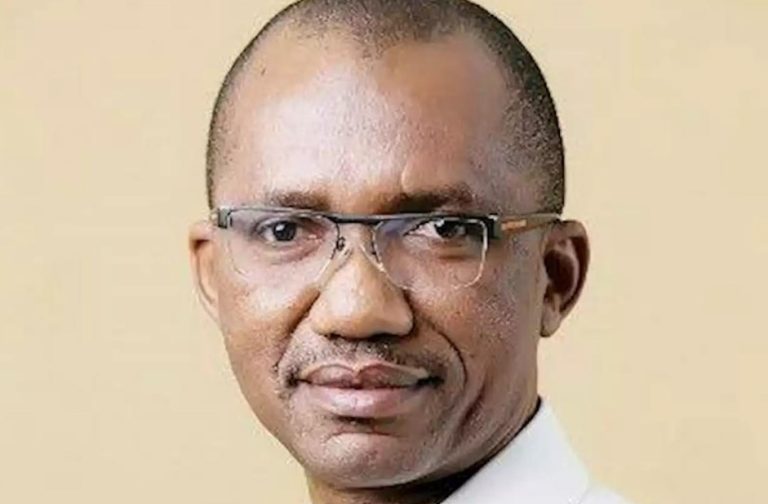We are in a new phase of politics hitherto never witnessed in our country. Sure, politicians that lost out in their parties are known for changing platforms. That isn’t new. They call it cross-carpeting. We should, of course, know that the word “Cross-carpeting” does not exist in the English language. Politicians coined it in Nigeria to describe a common phenomenon by which politicians switch political allegiance just to achieve their personal political goals. Here, this is fueled by the politicians’ desire to attain political office or truncate someone’s march towards political victory, unlike in other parts of the world where politicians defect for ideological reasons.
Etymologically, cross-carpeting was derived from the British House of Commons, configured with the government and opposition facing each other on rows of benches. Members of Parliament switch from the governing party to one in opposition (or vice versa) to align with arguments presented by one side, by crossing the floor to the side.
In this part of the world, it started in 1951. The National Council for Nigeria and the Cameroons (NCNC) of Dr Nnamdi Azikiwe had won 42 seats out of 80 in Western Nigeria’s Regional House of Assembly, defeating Chief Obafemi Awolowo’s Action Group (AG), with Awolowo set to become opposition leader and Zik the Premier.
That was when Chief Awolowo employed sentiments and urged his kinsmen in the NCNC to “cross the carpet”. This heralded a massive crossover to the AG and within 24 hours, 20 of them had “cross-carpeted” to the AG, denying Zik the opportunity to be Premier in the Western Region.
And so, cross-carpeting has been going on with those opposed to anyone in their party going to the other party to try to defeat the candidate of their former party. That was how it has been, and that was considered fair enough.
But now we are seeing a new phase in which disgruntled elements remain and openly fight their parties and their candidates. Unlike in 2014 when Alhaji Abubakar Atiku and others co-formed the “new Peoples Democratic Party” or nPDP, pulling out from the PDP to join the then-opposition All Progressives Congress (APC), now the vogue is to fight it within.
Since failing to clinch the presidential ticket of the PDP and having been found unsuitable material for vice president, Governor Nyesom Wike has been behaving like a child denied a feeding bottle belonging to a neighbour’s child.
Akin to an elephant in a china shop, he has recruited some like-minded politicians on a mission to destroy the vehicle that gave them relevance. Having failed to cause an implosion in the PDP through the unconstitutional removal of its chairman, he has been crying about being victimised.
It is on record that he deliberately withdrew from his party’s presidential campaign council and urged all those with him to do the same. He now runs around crying that he was not consulted when members of the PCC were being appointed. And all those from his state who joined are now called “enemies of the state” – or “saboteurs” in the parlance of the Independent People of Biafra (IPOB).
Sadly, he is losing the sympathy and understanding of those who earlier thought he was being altruistic, proving German psychologist, psychoanalyst, sociologist, humanistic philosopher and democratic socialist, Erich Seligman Fromm, right when he said, “Selfish persons are incapable of loving others, but they are not capable of loving themselves either.” However, even though his antics are causing him diminishing relevance by the day, he is an elephant in the room that PDP will do well to sedate.
But it is not only the PDP that has an elephant in the room threatening to destroy its furniture. The ruling APC, too, has one. To appreciate that of the APC, one first needs to understand where the party is coming from.
In June this year, in an article entitled “Governor Buni and CECPC Assignment: The making of a quintessential national leadership material”, Dr Ali Ibrahim Abbas, a public affairs commentator, said Governor Mai Mala Buni met a fragmented, dying APC in June 2020 and turned it into the largest party in Africa within a year.
He said: “Upon assumption as the CECPC chairman, Governor Buni immediately embarked on a genuine and all-inclusive reconciliation process… built new bridges of hope, and aggrieved members reconsidered their stance and stayed back in the party.”
Dr Abbas also said Buni embarked on a membership enrolment campaign, registration and revalidation exercise, increasing the party’s numerical strength to 41.7 million from the 11 million he inherited. Coupled with that, “he recorded massive and historic high-powered defections into the party by three serving governors of the states of Ebonyi, Engr. Dave Umahi; Cross River, Prof. Ben Ayade, and Zamfara, Alhaji Bello Matawalle, as well as the deputy governor of Anambra State, who all defected along with millions of their supporters from PDP into the APC.
“Additionally, the party witnessed the grand defection of the former speakers of the House of Representatives, Rt. Hon. Dimeji Bankole and Rt. Hon. Yakubu Dogara; former PDP national chairman, members of the PDP Board of Trustees, several serving and former Senators and members of House of Representatives and state assemblies, among several other heavyweights cutting across all the geo-political zones of the country.”
Therefore, by the time Buni handed over the APC to Senator Abdullahi Adamu, after successfully organising the party’s convention that produced him as national chairman, the party was in top form. Without Buni’s input as chairman of the party’s Caretaker Extraordinary Convention Planning Committee (CECPC), there might have been no party of any substance for Abdullahi Adamu to inherit or for anyone to aspire to govern through it.
In places where people value achievements, Buni would have a permanent monument in the APC headquarters that his committee bought for the party and named after President Muhammadu Buhari. Even if his name would not be engraved in the party’s Hall of Fame and his person accorded maximum respect in all party and national activities, at least his name should not be dragged into the mud for no just cause.
Unfortunately, from the moment Abdullahi Adamu became chairman, everything pointed to his self-destructive mindset. Like an imperial overlord or a village headmaster, he stumbled from single-handedly endorsing a presidential candidate, to speaking down and harshly on candidates seeking their rights, and to sacking staff illegally as well as refusing to pay salaries.
He has kept behaving as if the people that facilitated his becoming chairman are his sworn enemies, accusing them falsely, according to directors he illegally sacked, of leaving the party in debt. Ironically, he is the one the staffs at the party headquarters keep accusing of illegal withdrawals amounting to billions of naira.
Sometimes one wonders: is he a mole working to truncate his party’s victory at the polls? Abdullahi Adamu is also an elephant in the room of the APC that the party needs to tame.
Hassan Gimba is the Publisher and Editor-in-Chief of Neptune Prime.





